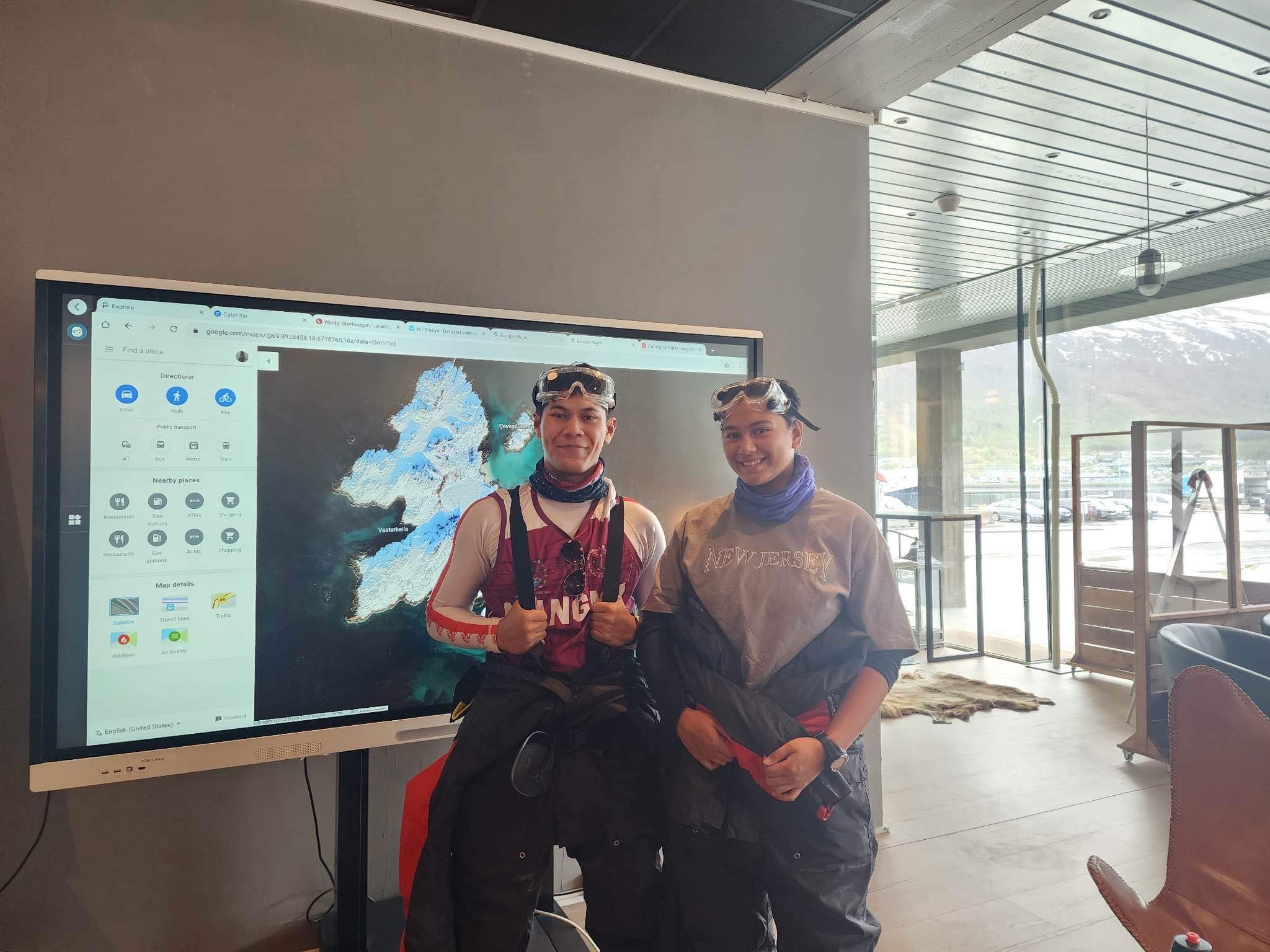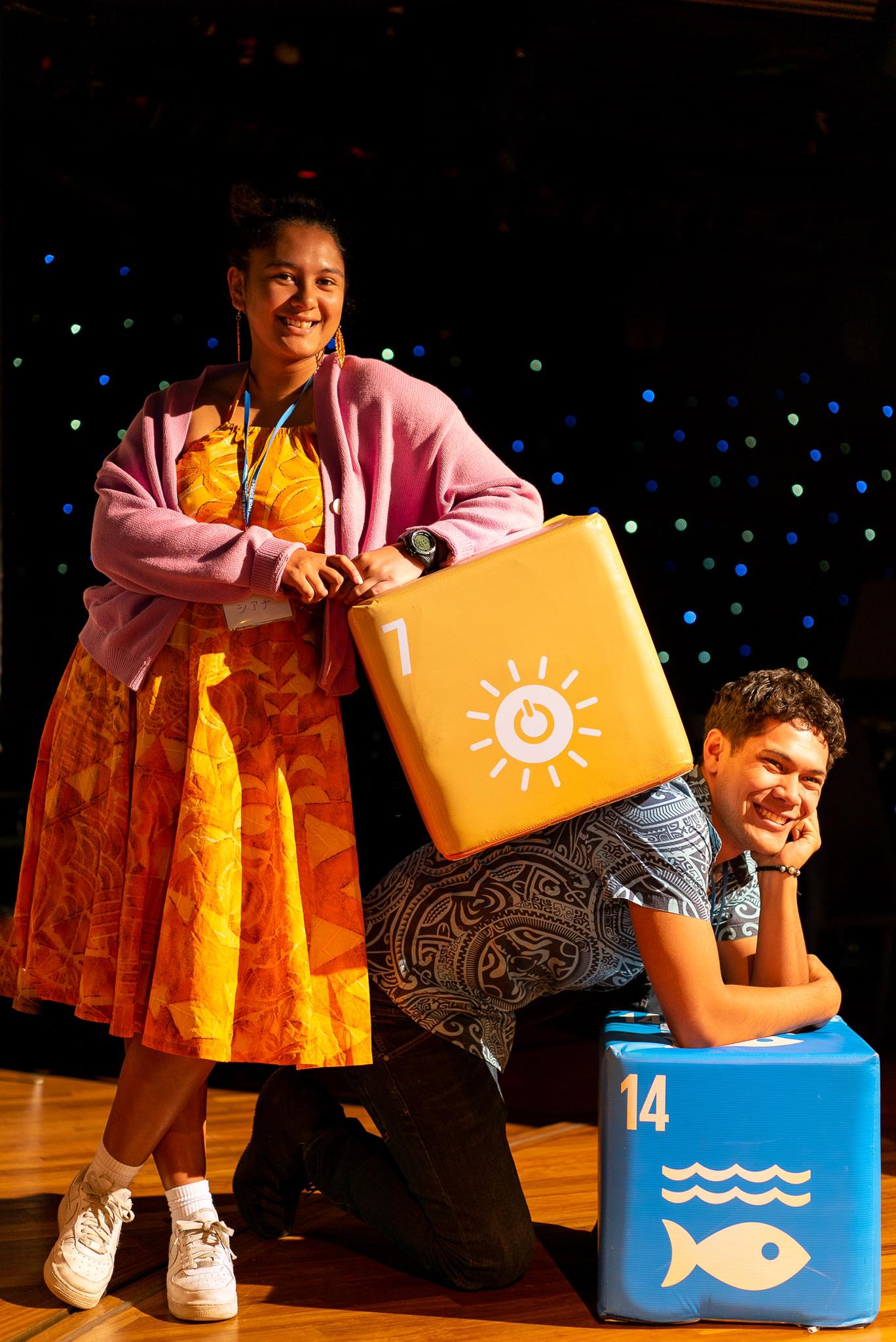Cook Islands teens on Arctic expedition see puffins for the first time
Tuesday 6 June 2023 | Written by Losirene Lacanivalu | Published in Economy, Environment, National

Siana Whatarau and Winton Herman spend the day in Tromso, Norway. They had a presentation from the Arctic Economic Council and Professor Dan Vermeer from Duke University on how to make blue economy green. 23060233
In Norway. SUPPLIED/23060229
The Kōrero o te 'Ōrau's 'Ātui'anga ki te Tango students Siana Whatarau and Winton Herman have arrived in Tromso, Norway for their Arctic journey.
The duo representing Cook Islands on an Arctic expedition among 11 other youths are now youth ambassadors for the Blue Planet Alliance. Their goal is to get island countries to transition to renewable energy.
Whatarau said they had a presentation from the Arctic Economic Council and Professor Dan Vermeer from Duke University on how to make the blue economy green.
Whatarau said: “So far we have been to London and Tilbury in the United Kingdom and Andalsnes and Tromso in Norway.”
On Friday, they went on a small speed boat to a Norwegian island called Gasvaer where they learnt about kelp.
“Then we went to a protected bird sanctuary by boat and saw lots of birds, including puffins.”
It was the first time they saw puffins – a group of marine birds distinguished by black, dark grey, or black and white, plumage and a vibrantly coloured beak.
Whatarau said: “We went by boat to another island, quite far apart, that is a bird sanctuary. We couldn’t land on it but we didn’t need to. It was a huge rocky island with steep cliffs and there were tonnes of birds. I saw puffins for the first time ever. There were so many. And there were huge white tipped eagles and other birds too.”

Siana Whatarau and Winton Herman are now youth ambassadors for the Blue Planet Alliance. Their goal is to get island countries to transition to renewable energy. SUPPLIED/23060232
Also at Gasvaer they were taught about coastal plants as a food source for Norwegians.
She said it was interesting because Norway was a harsh place to live in.
“In summer the sun is always up, 24/7 for three months. And in winter, the sun is not seen for three months, it’s dark all the time.
“This means a lot of common ingredients have to be substituted for other plants that grow in these conditions. It was an interesting session.
“We also did water testing on this island, as we have in all the ports we’ve been to.”




































